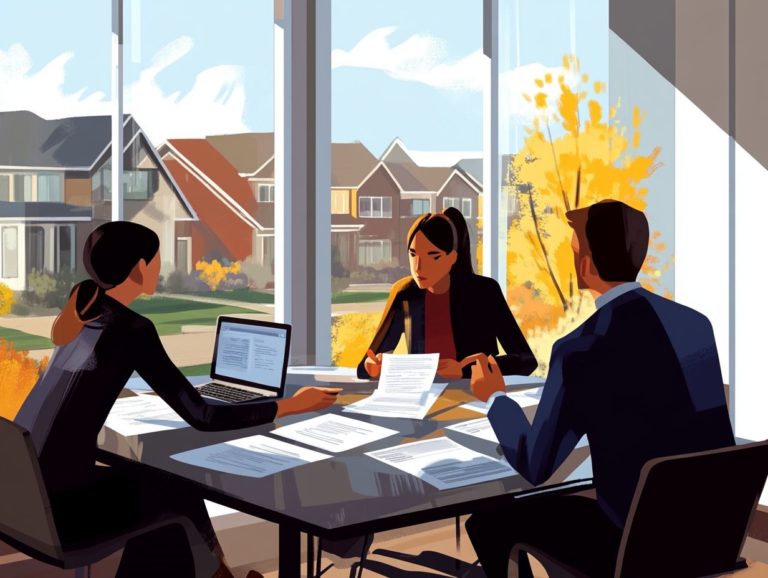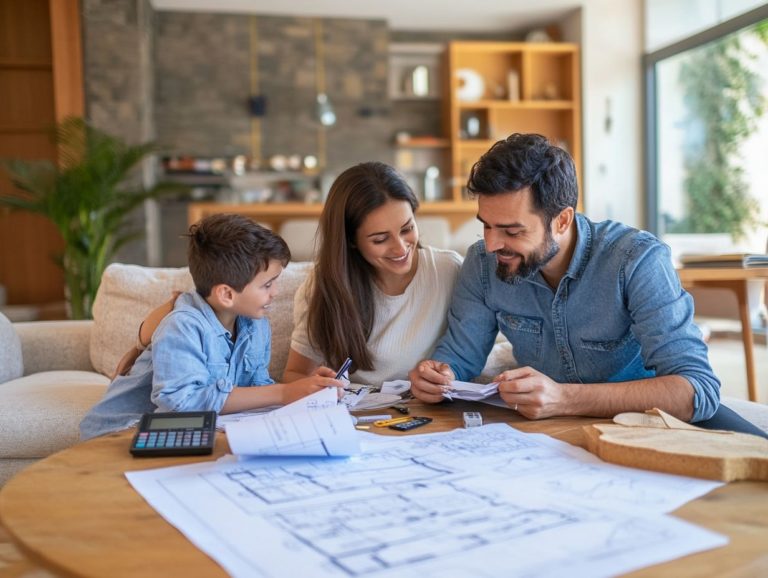What Are the Pros and Cons of Buying a New Build?
When you think about home buying, the charm of new build properties is truly captivating. Their modern features and opportunities for customization present an appealing fresh start for many buyers.
However, it’s crucial to evaluate both the benefits and drawbacks before you take the plunge. Understanding what constitutes a new build and considering important factors such as location and builder reputation will empower you as you navigate your journey toward a new home.
This guide will illuminate your path, ensuring you make informed choices along the way.
Contents
Key Takeaways:
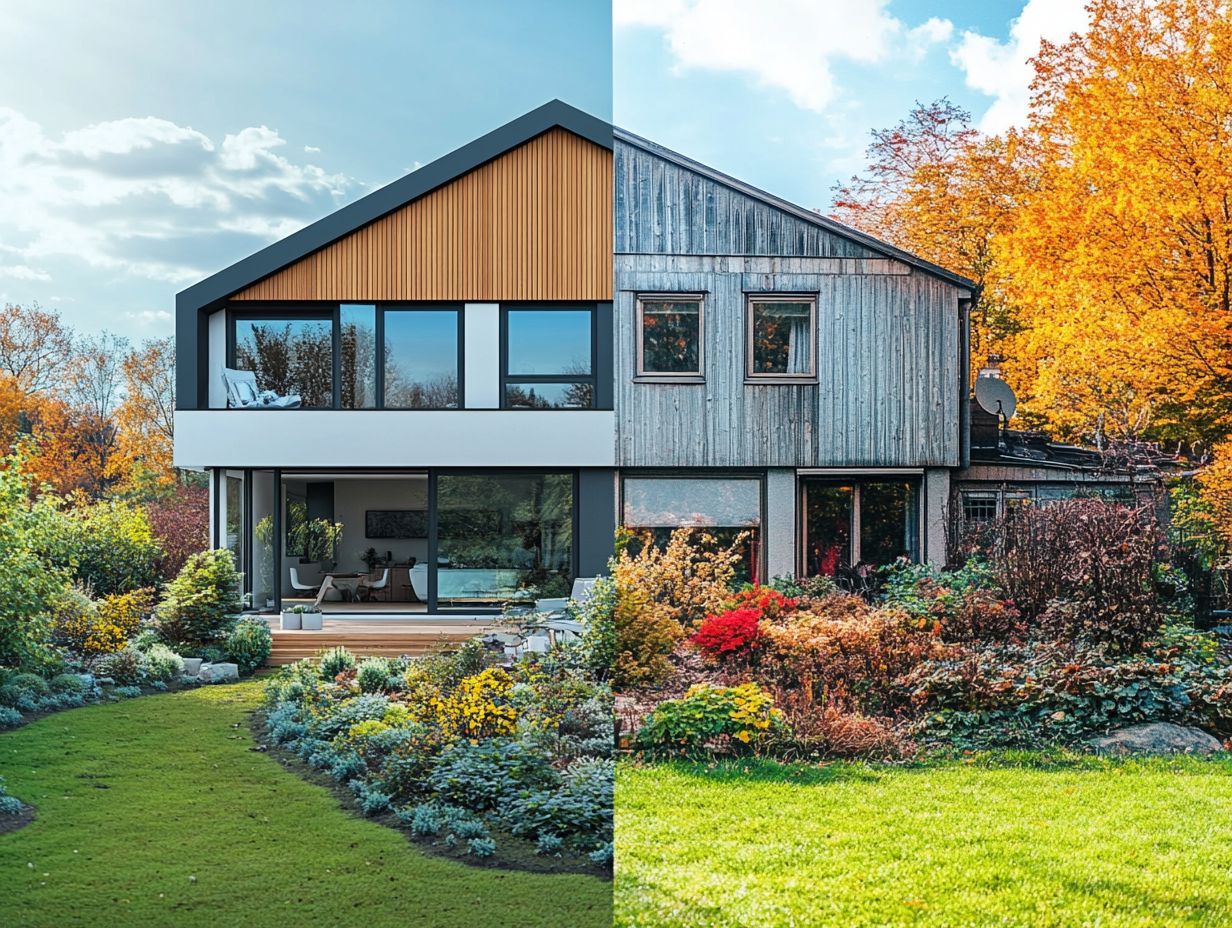
Customize your dream home. New builds offer a range of customization options to make your dream home a reality.
Experience modern living. New builds often come equipped with energy-efficient appliances and smart home technology.
Enjoy peace of mind. New builds typically include a warranty that covers structural defects.
Understanding New Build Properties
Grasping new build properties is key for first-time buyers in today s real estate market.
With a growing housing shortage, many are turning their attention to new-construction homes as a viable option. These properties often come with customizable features and modern amenities, making them particularly appealing for those seeking low-maintenance living and energy-saving solutions.
As the market evolves, teaming up with a knowledgeable real estate agent can help you explore your financing options and uncover any hidden costs on your path to homeownership.
What Defines a New Build?
A new build refers to a home that has been freshly constructed, often tailored to your specifications using modern materials and technologies designed to enhance energy efficiency.
Typically, new builds follow a construction timeline that can span several months, depending on the project’s complexity and size. Home builders play a pivotal role in this journey, guiding you through design choices, material selection, and construction phases to ensure your vision comes to life.
As a buyer, you often have the opportunity to incorporate design updates. These can range from layout modifications to choosing fixtures that showcase your personal taste.
Your choice of building materials significantly impacts long-term maintenance costs. Opting for high-quality materials can lead to lower upkeep demands.
Therefore, when considering a new build, it s crucial to evaluate not just the aesthetics but also the sustainability and durability of the elements you choose.
Pros of Buying a New Build
Purchasing a new build presents you with a wealth of advantages. You gain the chance to customize your space to reflect your personal style and benefit from energy-efficient designs that address the needs of today s discerning homeowner.
Many new builds come with a comprehensive home warranty, giving you peace of mind.
Customization Options
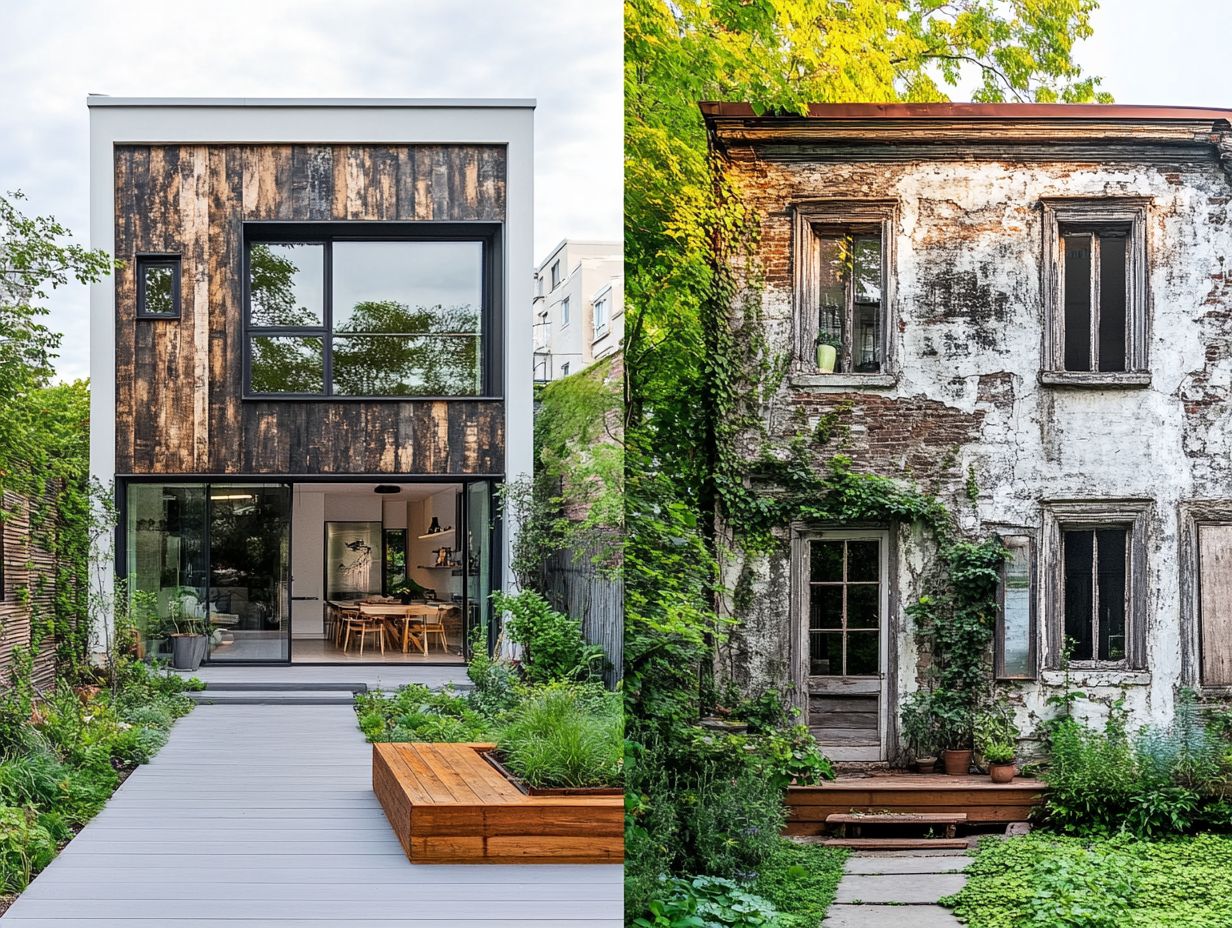
One of the most enticing aspects of new builds is the extensive customization options available to you. This allows you to select interior design elements and features that genuinely reflect your personal style and functional needs.
This flexibility spans everything from choosing the perfect floor plan that maximizes your space to selecting high-quality finishes that resonate with your tastes think stunning countertops, elegant cabinetry, and luxurious flooring materials.
These choices not only enhance the aesthetic appeal of your home but also elevate your overall living experience, tailoring it to your unique lifestyle. Moreover, these personalized touches can significantly boost property values.
Prospective buyers often seek homes that offer a harmonious blend of contemporary style and thoughtful functionality. By integrating trending smart home technologies, which allow you to control home devices remotely via your smartphone, and energy-efficient appliances, new builds effortlessly cater to both your practical needs and modern preferences.
Modern Features and Amenities
New builds often include modern features and community amenities. These aspects elevate your living experience and promote a low-maintenance lifestyle.
Imagine having smart home technology that puts control at your fingertips! You can manage lighting, heating, and security systems seamlessly through your smartphone.
Energy-efficient appliances are standard, ensuring daily tasks consume less power and leading to lower utility bills.
Many developments also feature community facilities like parks and gyms. These spaces foster a sense of belonging and encourage an active lifestyle.
You can revel in contemporary design and sustainability, making maintenance a breeze and living more enjoyable. Plus, you’ll create a nurturing environment that supports both relaxation and recreation.
Warranty Coverage
One standout benefit of buying a new build is the home warranty coverage. It offers a safety net against unexpected repairs and maintenance costs that can arise early in homeownership.
This warranty typically covers major systems and structural components, such as plumbing, electrical systems, and roofing. This means you can embark on your homeownership journey with confidence, free from the anxiety of sudden financial headaches.
The warranty cushions you against potentially hefty expenses and instills a sense of security in your investment. Many first-time homeowners may be unaware of hidden issues in a new property. However, having this protection means you can tackle surprises without significant out-of-pocket costs.
Over time, the peace of mind that comes with warranty coverage can lead to long-term savings, making it an essential part of your new home purchase.
Cons of Buying a New Build
Purchasing a new build has many advantages, but it’s essential to weigh the notable drawbacks.
Be mindful of potential higher costs, extended timelines for construction, and the possibility of hidden defects that might not reveal themselves immediately.
Potential Delays and Setbacks
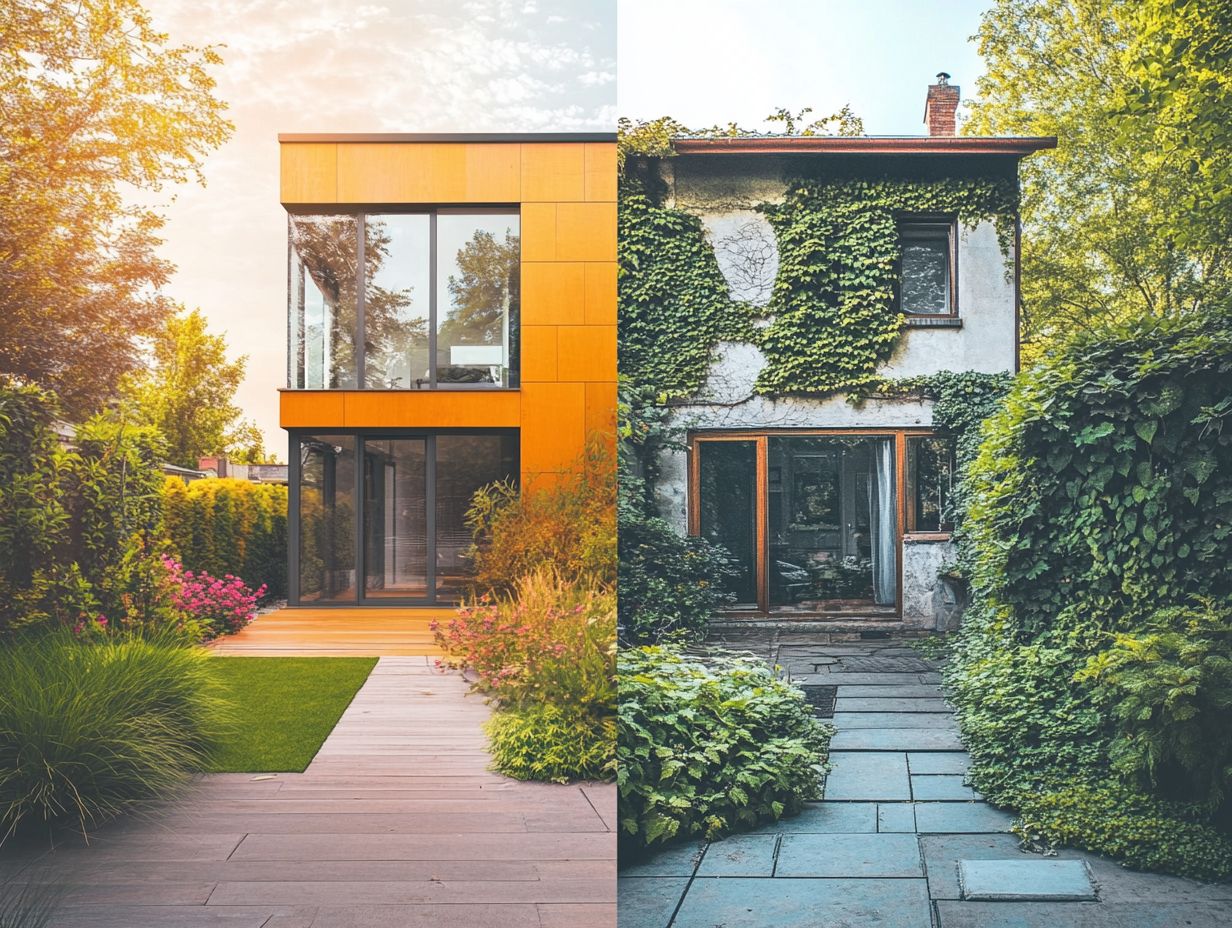
A significant concern when purchasing a new build is the potential for delays and setbacks. These can extend your timeline for moving in beyond what you initially anticipated.
Such hiccups can arise from various factors, including unpredictable weather that halts construction progress and supply chain shortages affecting essential material availability.
These disruptions not only lengthen your waiting period but also create a ripple effect on your plans and financial commitments.
For instance, you might need to secure temporary housing, resulting in unforeseen costs and logistical challenges. By understanding these common causes, you can better navigate your expectations and make informed decisions about your investment.
Higher Costs
New builds typically come with a higher upfront cost than pre-owned homes. They may also have hidden expenses like property taxes and fees tied to financing options.
The perception of these elevated costs can vary significantly based on geographical location and current market conditions.
In urban areas, expect to pay a premium for brand-new properties due to limited supply and high demand. However, in suburban or rural regions where land is more plentiful, new constructions may be comparatively more affordable.
As a potential homeowner, budgeting for not just the initial purchase but also for often-overlooked fees is essential.
Understanding various financing options, such as grants or loans specifically tailored for new builds, can significantly impact your overall costs and help ensure a smoother financial journey.
Limited Room for Negotiation
In a seller’s market, buying a new build often means limited room for negotiation. This can lead to feeling overwhelmed by choices as you struggle to secure favorable terms.
It’s essential to develop effective strategies to navigate these challenges. One useful approach is to establish clear priorities before you start viewing properties. This can help streamline your decision-making process.
Creating a checklist of must-have features versus nice-to-haves can significantly reduce the emotional weight that comes with feeling overwhelmed.
Seek guidance from experienced real estate professionals. They can provide valuable insights and strengthen your position, ultimately leading to a more informed and satisfying purchasing experience.
Factors to Consider Before Buying a New Build
Before you commit to a new build, take the time to thoughtfully evaluate several key factors. Consider the location, neighborhood, the reputation of the builder, and the overall quality of construction. Each of these elements plays a crucial role in shaping your future experience as a homeowner.
Location and Neighborhood
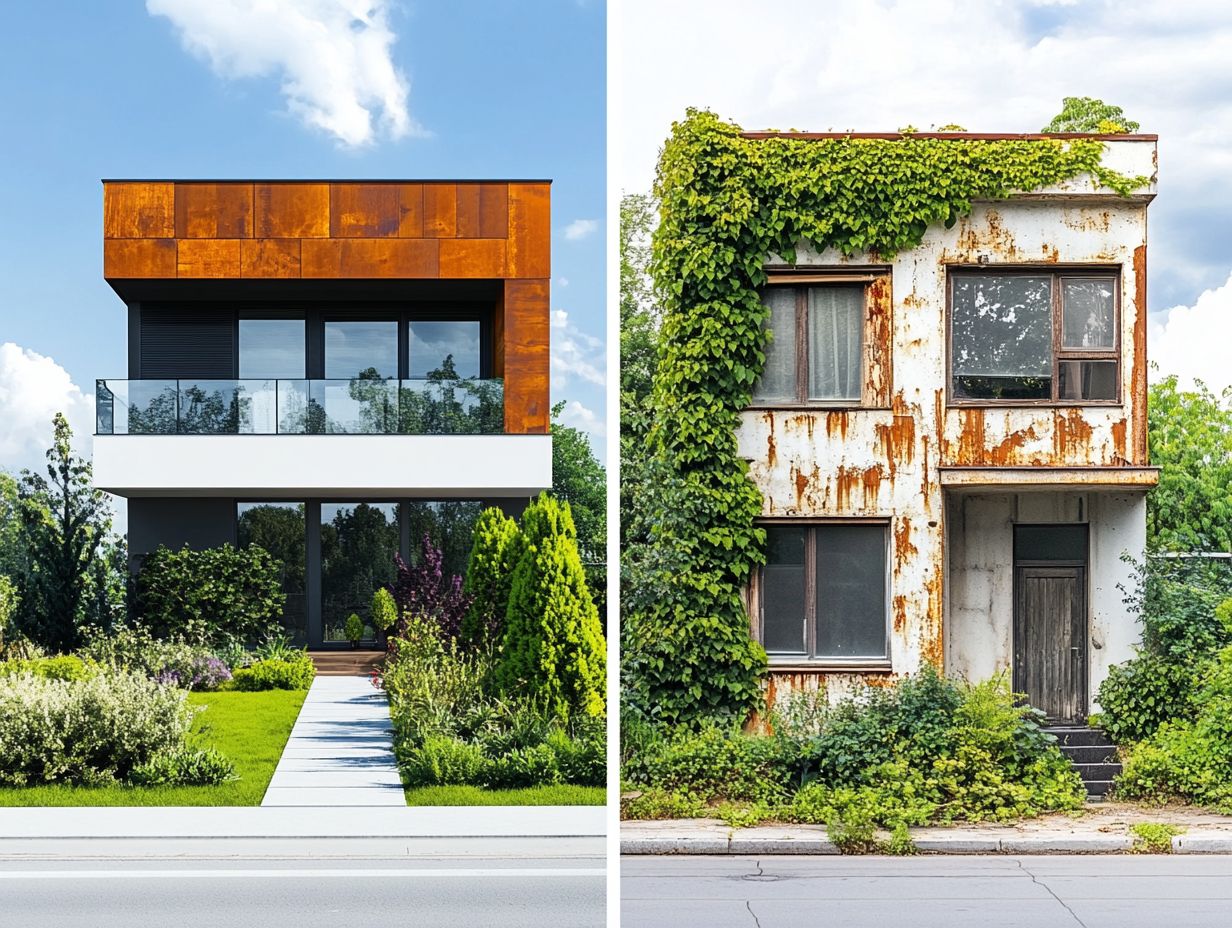
The location and neighborhood of a new build are paramount considerations for you as a buyer. They heavily influence property value and the availability of community amenities that can elevate your everyday living experience.
As you explore your options, prioritizing schools can be a game-changer for first-time buyers. This ensures access to quality education for future family needs while keeping an eye on commuting distances to workplaces that can either streamline or complicate your daily routine.
Proximity to recreational facilities such as parks, gyms, and shopping centers further shapes your choices, adding convenience that can significantly enhance your lifestyle.
Understanding the dynamics of a neighborhood, including crime rates and community engagement, enables you to assess whether a location aligns with your long-term aspirations.
Thus, conducting thorough research into these elements can equip you to make informed decisions. Ultimately, this leads to greater satisfaction with your investment.
Why Builder Reputation Matters
A builder’s reputation and track record are crucial in guaranteeing construction quality and minimizing the risk of hidden defects in new builds. This makes it essential for you, as a buyer, to engage in thorough research.
Start by examining the builder s credentials and qualifications. Then dive deeper into their reviews and past projects to assess their reliability and craftsmanship.
Don t hesitate to seek recommendations from friends or family who have undertaken similar ventures. Their personal experiences can offer invaluable insights.
Consider performing home inspections at various stages of the build. This proactive approach enables you to spot any potential issues before they escalate into significant problems.
By prioritizing these steps, you can secure peace of mind and ensure your investment endures over time.
Frequently Asked Questions
What Are the Pros of Buying a New Build?
1. Customization: One of the biggest benefits of buying a new build is the ability to modify aspects of your home, like layout and finishes, according to your preferences and needs.
2. Modern Features: New builds often come with energy-efficient appliances, smart home technology, and better insulation, making them more cost-effective and environmentally friendly.
3. Low Maintenance: Since everything in a new build is brand new, you can expect lower maintenance costs and fewer repairs in the first few years of homeownership.
What Are the Cons of Buying a New Build?
Buying a new build can be thrilling! However, be aware of the potential downsides.
New builds tend to be more expensive than older homes. This is especially true in popular locations, and additional fees for customization may apply.
New builds are typically found in developing areas. These areas often have fewer shops and services, which could lead to longer commute times.
Building a new home often comes with delays. This can be frustrating for buyers, especially if they are on a tight timeline.


